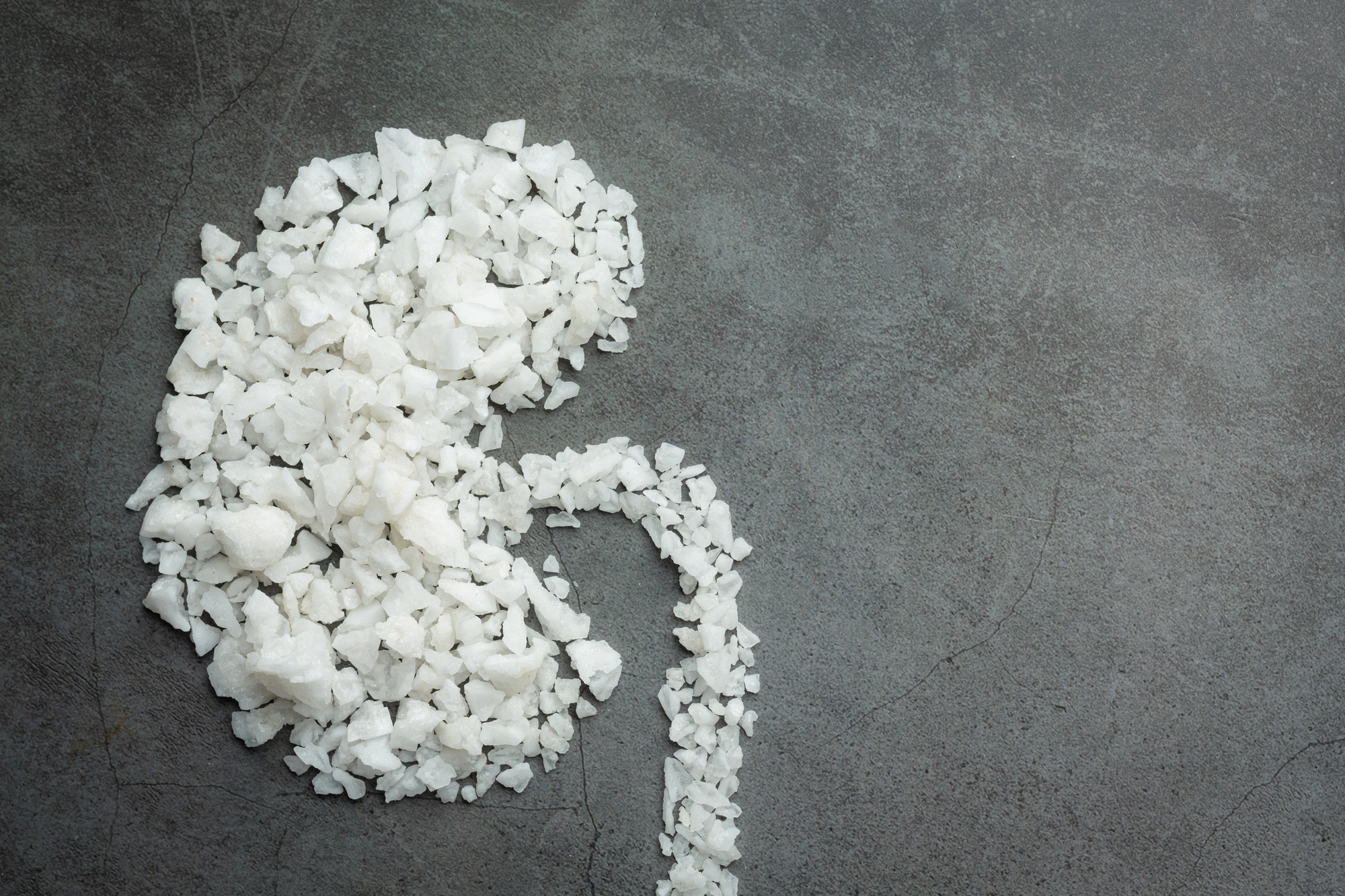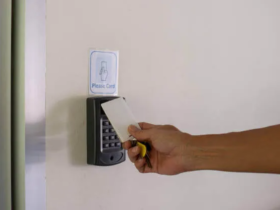“Regular exercise, control your blood sugar level, always stay hydrated, eat a healthy diet and quit smoking”
Overview
The kidneys are bean-shaped organs located at both sides of your spine at the bottom of the rib case. Like the heart, these organs perform many functions as they filter waste products, excess water, and other harmful liquids and impurities from the blood. These filtered waste products are stored in the bladder and later excreted through the urine.
Also, the kidney regulates the body’s pH levels and salt and potassium levels. Keeping the kidney in good health always is important to your health and general well-being. By keeping the kidney healthy, the body effectively filters off impurities and expels them from the body while secreting hormones for better functionality.
Why Are The Kidneys Important?
Your kidneys play a vital role in your health. They filter blood and balance it by excreting waste products and excess water. They produce approximately 1 to 2 quarts of urine every day. They are responsible for regulating the amount of salt and water in your blood and filtering extra water and toxins. Their primary job is to filter waste materials and produce urine. However, if they do not do their job properly, they can negatively impact the rest of the body’s functions.
As mentioned above, the kidneys filter your blood. As a result, your body has a healthy balance of chemicals in its blood. That balance is crucial for the proper functioning of your organs.
The kidneys also regulate blood pressure, produce hormones necessary for human life, and help keep your bones healthy.
What Happens When Your Kidneys Are Damaged?
When your kidneys are damaged, they leak albumin into your urine. This protein builds up in your urine, making them more prone to damage.
Also, if you have Acute kidney injury, your kidneys become ineffective in filtering your blood. They are unable to function properly because of reduced blood flow. Symptoms of AKI include decreased blood flow, inability to urinate, and decreased urine production. Acute kidney damage may also result from heart failure or side effects from medications. Kidney failure may lead to serious health complications, including death. So, it’s important to consult a doctor if you think you may be suffering from this condition.
Causes of Kidney Damage
There are many causes of kidney damage, but we can’t rule out some of them completely. The good news is that kidney damage can be prevented or delayed by recognizing the early signs. Often, kidney damage is accompanied by weight gain, fluid accumulation in the extremities, and high blood pressure. It is also possible to develop anaemia since kidneys are crucial for producing red blood cells.
Diabetes is one of the leading causes of kidney damage in the United States. This condition results from too much glucose in the blood, which damages the filters in the kidneys.
In addition to diabetes, high blood pressure damages the blood vessels in the kidneys, reducing their ability to filter waste. If you have high blood pressure, your kidneys will not filter waste as effectively, resulting in protein in your urine. Kidney failure also increases blood pressure.
Also, IgA nephropathy, which is caused by an immune reaction to immunoglobulin A, is a cause of kidney damage.
How Can I Keep My Kidney Healthy?
Though kidney disease poses as a deadly disease, they are various ways you can prevent getting affected. It all revolves around taking proper care of your kidney. Below are 5 ways you can take proper care of your kidney today.
Exercise Regularly
Despite what you might think, regular physical activity can improve the health of your kidney. A recent study found that dialysis patients who engage in short periods of moderate physical activity after their dialysis treatments actually feel better. This was done by researchers at the National Yang-Ming University in Taiwan. Participants were encouraged to increase their physical activity level by up to 30% during the study.
In addition, the benefits of physical activity for kidney patients were found in a study involving 4,011 adults in the Cardiovascular Health Study. Both aerobic and resistance exercise increases the rate at which blood is filtered through the kidneys. Aerobic exercise improved blood circulation in dialysis patients and helped the kidneys filter urea better. However, other types of exercise are beneficial to the kidneys and should be undertaken as part of a kidney patient’s exercise program.
While many of these studies have only been conducted on small numbers of people, they point to a potential positive effect of exercise on kidney health.
Those with kidney disease may feel weaker and more tired than before. The muscles may also shrink and waste away. This is normal for everyone who does not exercise, but the effect is much greater when the kidneys fail. In addition, extra toxins in the blood make the condition worse. So, it is essential to exercise regularly to protect the kidney. And don’t forget to drink plenty of water, and make sure to stay active.
Control Your Blood Sugar
In diabetes, high blood sugar damages the kidneys’ filtering system, leading to damaged kidney blood vessels. High blood pressure can also damage the kidney’s filtering system, causing deterioration of kidney function. Patients can play an active role in their treatment by controlling blood sugar levels.
High blood sugar causes the filtration system in the kidneys to filter too much blood. This extra work stresses the nephrons and weakens their filtering capacity. Diabetes patients should speak to their doctors to determine the best way to reduce their risk of kidney damage and maintain good kidney function.
Diabetics must also monitor their blood glucose levels after meals and after exercise to check the effectiveness of their insulin. A1C levels should be checked regularly, as they show the average blood sugar level over the previous three months. A high number means that blood glucose levels were high for that period. If the level is consistently high and continues unchecked, it can lead to complications in the kidney.
Stay Hydrated
If you have ever had a kidney stone, you may have wondered how staying hydrated helps. Well, it helps the kidneys by diluting the substances in the urine that lead to stones, and it is recommended that you drink at least 3 quarts of water a day. Of course, your fluid intake depends on your activity level and weather. Still, you can try adding frozen fruit to your water for flavour and colour. You can even use fruit peels instead of ice cubes.
Water is essential for the human body, and it is found in all parts of the body. Water helps the body eliminate waste, lubricate joints and maintain blood pressure and circulation. It also aids in digestion and helps the kidneys perform their role. In fact, the human body is 60% water, and drinking plenty of water will make you healthier in many other ways. If you are a woman, the NHS recommends drinking eight glasses of water each day. Depending on your gender and age, you may need more or fewer fluids.
Eat Healthy Foods
To help keep your kidney healthy, eat more leafy green vegetables. These foods are nutrient-rich and contain important vitamins and minerals. They also lower your cholesterol and blood sugar levels, two of the most common risk factors for kidney disease. Aim to eat two to three servings of leafy green vegetables per day.
Red bell peppers are packed with antioxidants and are great for kidney health. These vegetables are low in potassium but high in vitamin C, fibre and other nutrients. They are also high in lycopene, an antioxidant that protects the kidneys from damage from free radicals. Red bell peppers can be eaten raw, roasted, or sauteed. Aside from being low-sodium, they are also low-cost.
Also, eating a diet low in sodium and potassium is a good way to control blood pressure and reduce fluid buildup. Limiting salt intake helps keep blood sugar levels at healthy levels and reduces fluid retention.
Consider eating Sweet potatoes, as they are an excellent source of fibre and beta-carotene. These nutrients help the kidneys absorb vitamins from the food we eat and protect the eyes. Sweet potatoes are high in potassium and can balance your sodium levels. If you’re having trouble finding ways to incorporate sweet potatoes into your diet, try making a sweet potato instead of a regular potato dish. And don’t forget about apples. They’re also packed with fibre and anti-inflammatory compounds.
Quit Smoking
According to the National Kidney Foundation, smoking has a significant impact on the kidney and doubles your risk of developing the disease. Smoking slows blood flow to organs, including the kidney, and may make certain medications less effective.
While there is no cure for chronic kidney disease, it can be reduced by limiting exposure to the toxins and chemicals found in cigarettes. Smokers also tend to have higher risks of developing cardiovascular disease, which is another major contributor to kidney disease. As a result, it’s important to avoid smoking. Additionally, smoking increases the risk of developing kidney cancer.
However, quitting can be difficult. But not to worry as smoking cessation programs are available, and most insurance plans cover the cost of these. The sooner you quit smoking, the better the kidneys will function. Also, quitting smoking protects your family and others from illnesses caused by secondhand smoke. So, what are you waiting for? Quit smoking today and begin living a healthier life.
FINAL WORDS
Put the health of your kidney as your priority today. Place your goals and start making some lifestyle changes one at a time. However, your healthcare provider can help you highlight your areas of change. If currently, you’re experiencing some sort of kidney dysfunction, feel free to alter some of the tips provided to suit your situation. Remember to always consult your kidney doctor and dietitian to help with these changes.
Stay safe and improve your health today!













